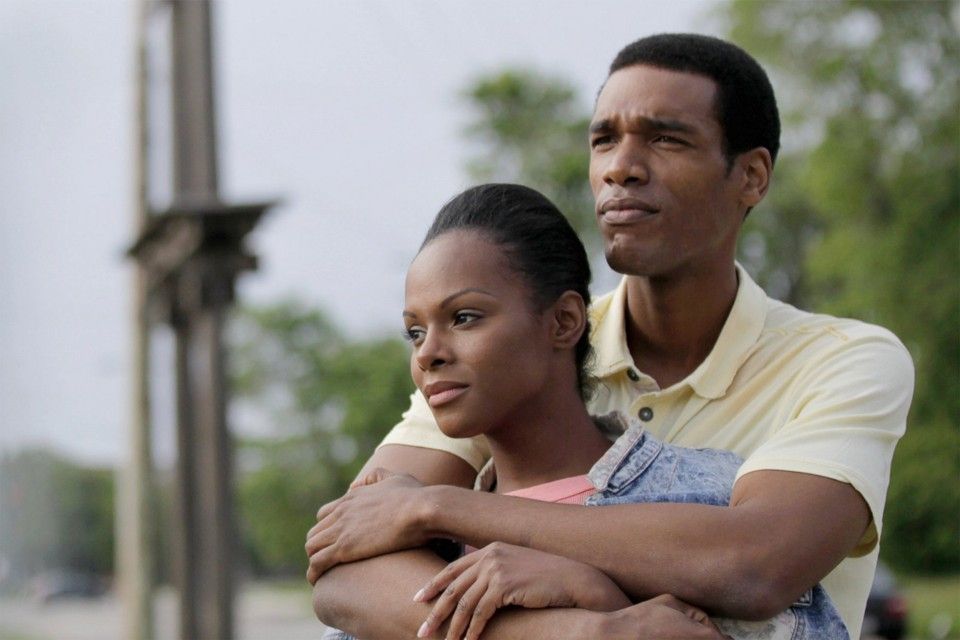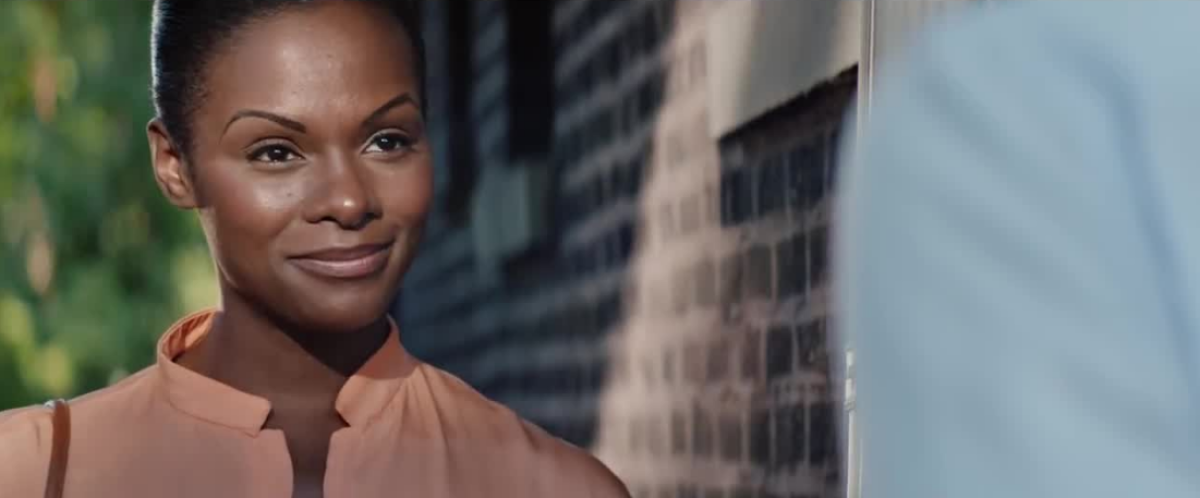
Americans are fascinated by the past lives of their presidents. Hollywood too. It's an obvious curiosity. Seeing the commander in chief in college, getting stoned or chasing young love is like running into your math teacher at Applebee's: You know that side of the person exists, but it's still pretty weird to see up close. John Ford memorialized Abraham Lincoln's early law career in one of his most understated films, Young Mr. Lincoln. Oliver Stone's W painted the 43rd president as an entitled clown, bumbling through life until God or Karl Rove or whoever told him to run for president. There's a funny scene in that film where young Bush meets a pretty woman named Laura at a barbecue. "So what do you do?" Dubya asks in between swigs of beer. "I'm a librarian," she tells him. He frowns: "Uh oh."
Barack Obama's early encounters with Michelle Robinson didn't go much more smoothly. He was a 27-year-old summer associate at a corporate law firm in Chicago, where Michelle was assigned to be his mentor. She was strictly focused on her career—and, anyway, a romantic relationship with a colleague was out of the question. He had other ideas. Southside With You, Richard Tanne's sweet, sentimental directorial debut, makes a movie out of their first date on a summer day in the late '80s: They talk, visit an Afrocentric art exhibit, talk, attend a community meeting at a church, talk, see a movie, talk some more. And that's it. That's the whole plot. In Tanne's generous and romantic telling, it's enough.
It's 1989. Janet Jackson's "Miss You Much" is all over the radio. The film opens with a cute, young Barack smoking cigarettes and calling his grandma as he prepares for the date. Parker Sawyers, best known for his work in Zero Dark Thirty, plays this role ably: He doesn't look so much like Obama, but he captures the mannerisms—the confidence, the insatiable curiosity, that enigmatic puzzle of calm. It was wise to choose a largely unknown actor for the job. Sawyers disappears easily into the role. During the church scene, he convincingly mimics the future politician's oratory gift as Michelle, wide-eyed and surrounded by churchgoers who rave about this Barry figure, silently watches.
Still, the date does not go well at first—particularly considering Michelle refuses to identify it as a date. (Has anyone ever wanted to see a movie about a first date that does go well? When Harry Met Sally…, which hit theaters that same summer, wouldn't have been much of a rom-com if Harry and Sally had hit it off from the beginning.) Michelle, played by Tika Sumpter (Ride Along, Gossip Girl), is so insistent on this point that Barack's repeated advances almost seem creepy. A young black woman at a predominantly white law firm, she's worried what the partners would think. Michelle dismisses him as "just another smooth-talking brother" but is gradually charmed, as these things go, and though Sumpter's Michelle is a little too scolding, too much a character to be "won over" by the hero, the film sheds plenty of insight on her early life—how she kept her father's multiple sclerosis a secret, how her close family ties contrasted with Barack's far-flung roots.
Did Barack and Michelle really go see Do the Right Thing on their first date? Yes, that's a genuine (and genuinely remarkable) tidbit of history. Seeing the first black president and first lady seated in a darkened theater as Spike Lee's explosive meditation on '80s racial relations boils over on the screen carries more symbolic weight than a screenwriter would dare invent. This screenwriter takes it one further, having Barack explain Mookie's great act of resistance to Michelle's stodgy white boss. "Be careful," Barack jokes as they walk out, referring to David Denby's now-infamous review. "I feel a riot coming on."
Did they argue the finer points of Stevie Wonder's discography over drinks (he prefers Innervisions, her Talking Book)? And did Barack really tell Michelle about his white girlfriend from his Columbia days, Genevieve, and the alienation he felt when he visited her white family in Kansas? Who knows? If some of the dialogue sounds like it was cribbed from a politician's memoir, that's because it was: Tanne's script borrows phrasings from his first book, Dreams From My Father, and Barack and Michelle at times come across more like rough caricatures of their modern-day selves than the real, breathing, uncertain 20-somethings they once were. The screenplay is so overstuffed with explanatory detail it doesn't pause to consider that we already know these characters; we don't need to hear every biographical detail recited anew.

Several years from now, Hollywood will inevitably have an Obama biopic for us to puzzle over. It'll be a big, ambitious film, helmed by a big, ambitious director—maybe a Spielberg or Stone. Southside With You is not that film. It does not want to be. This is a small-scale romance with small ambitions but fairly big heart. Like Do the Right Thing, this film takes place in the span of a momentous summer day in 1989. That movie ends with a trash can exploding through the window of a white-owned pizzeria. This one has a more tranquil resolution. There's no sex or politics. Just flirty glances and a hopeful glimmer of understanding.
If you watched Southside With You 25 years ago, with no foreknowledge of its historical import, you might wonder. Or you might think it was just about a secret summer fling, as sweet and fleeting as a Janet Jackson song on the radio.
Uncommon Knowledge
Newsweek is committed to challenging conventional wisdom and finding connections in the search for common ground.
Newsweek is committed to challenging conventional wisdom and finding connections in the search for common ground.
About the writer
Zach Schonfeld is a senior writer for Newsweek, where he covers culture for the print magazine. Previously, he was an ... Read more
To read how Newsweek uses AI as a newsroom tool, Click here.








